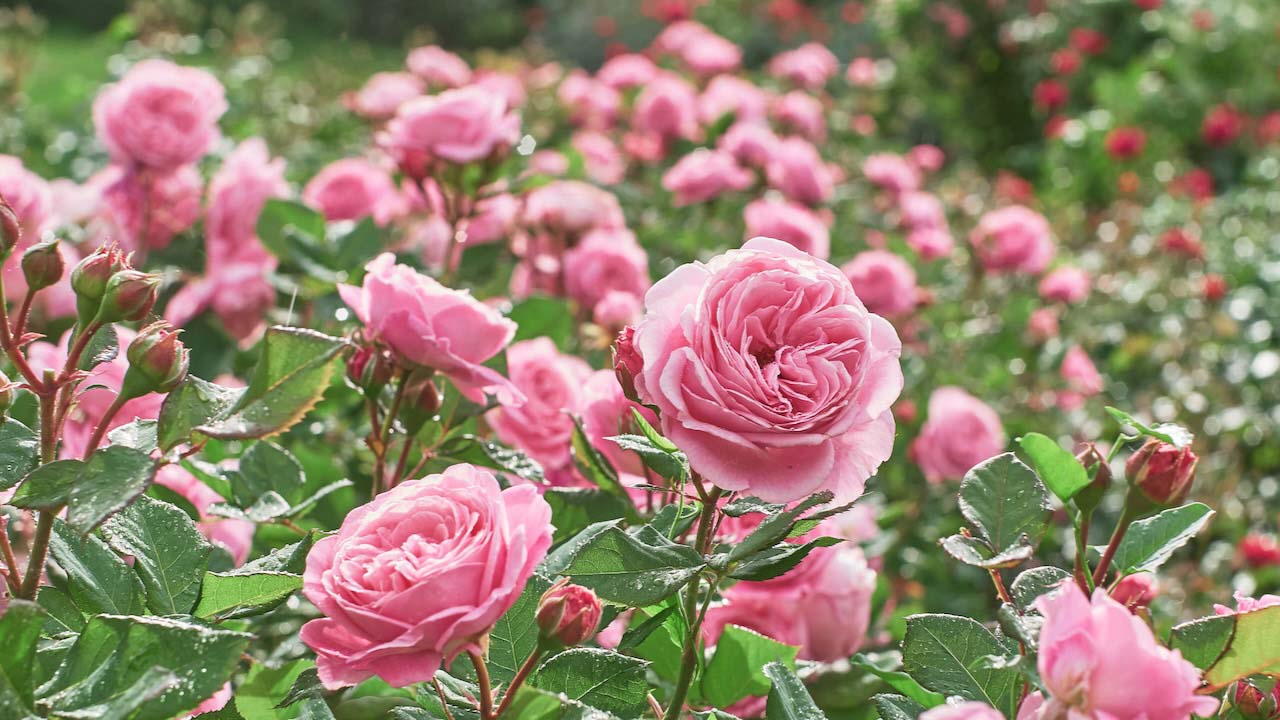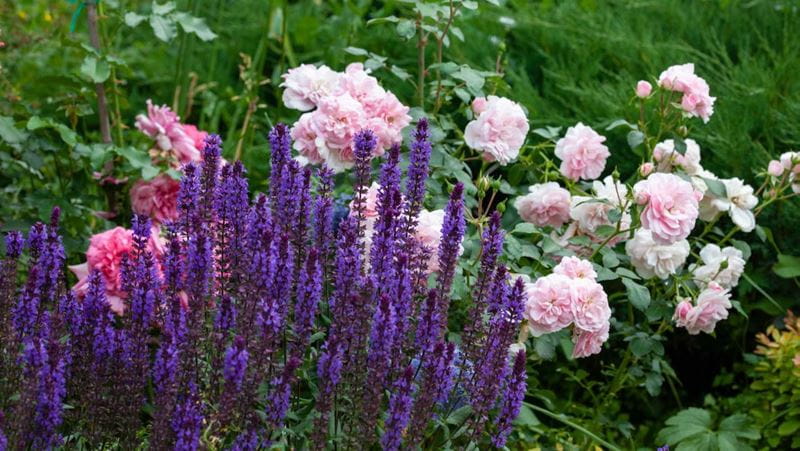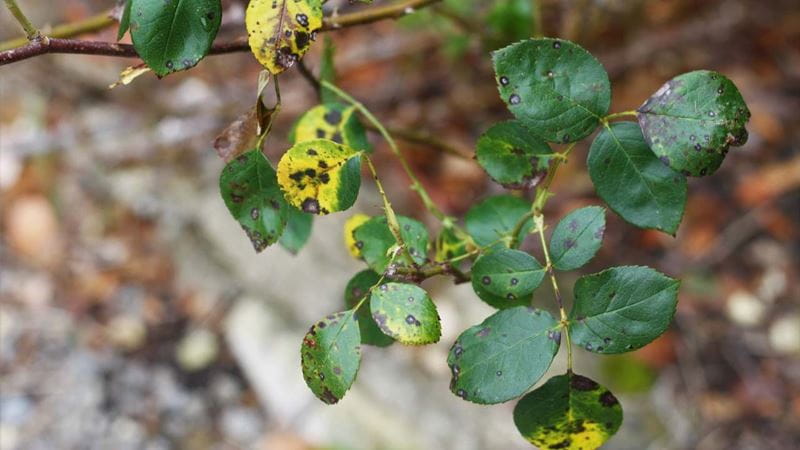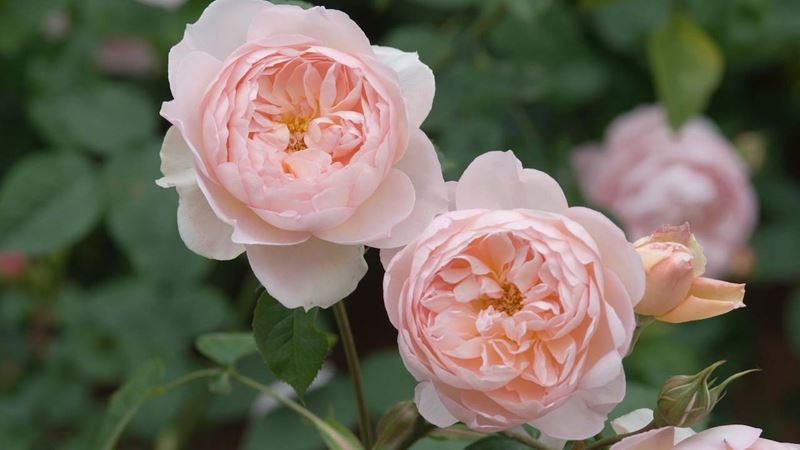Rose growing mistakes that could be killing your flowers
Sad at the sight of poorly, drooping roses? Fix these three rose-growing mistakes and fall in love with your flowers all over again.

Sad at the sight of poorly, drooping roses? Fix these three rose-growing mistakes and fall in love with your flowers all over again.

Roses’ regal beauty and unmatched elegance is fragile, and sometimes it can feel like a balancing act to keep them thriving. From managing pest control to nourishing your plants, sometimes it’s tough to know the right way to look after roses.
If you’ve been really struggling to keep your flowers happy, the solution might be simpler than you think.
If you’re guilty of making any of the three following errors, then here’s where your fraught relationship with rose growing ends. We’ve spoken to garden experts who have revealed three major (yet common) rose-growing mistakes many of us are making. Get ready to fall in love with these flowers all over again.
Some plants are toxic to roses

You may want to think about what other plants you have close by to give your roses a better chance of thriving. For example, it’s a bad idea to plant them with anything that attracts aphids, such as salad plants (lettuce and arugula) as these will spread to your roses.
Other no-nos are plants that grow aggressively, such as ferns and bamboo, as these will compete for nutrients – not good given that, according to David Austin Roses:
“Roses are greedy feeders and do not like too much root competition.”
You should also avoid planting roses near any members of the nightshade family, such as tomatoes, potatoes or peppers, as they can produce toxins that are harmful to roses.
So what are good companions for roses?
“Plant them with the compact salvias, such as S. ‘Nachtvlinder’ and other jamensis or gregii hybrids, which helps hugely in keeping them blackspot and mildew-free,” says garden expert Sarah Raven, who notes that salvias make great companion plants for roses.
Salvias release a natural fungicide that helps keep blackspot at bay, and they can encourage beneficial insects to the area, some of which can help control pests, like aphids – protecting roses in the long run.
Remain vigilant: observe, identify early and treat

Sometimes, through no fault of our own, we don’t pay roses quite enough attention.
“What you don’t want to do is ignore the garden,” says Guy Barter, chief horticulturist of the Royal Horticultural Society. Doing so might mean you end up finding lots to deal with, not to mention, scrap plants.
“Vigilance is the main thing, where you might want to order some biological controllers which are little insects you buy to control unwelcome visitors.”
Robert Silver, founder and CEO of ProGardeningBlog, highlights how not addressing issues immediately can cause problems later down the line.
“Most gardeners make the common mistake of forgetting to protect their roses with appropriate insect and disease management treatments.
“Neglecting these problems could be harmful to the plants. Aphids, mites, and several diseases, including powdery mildew and black spot, can all affect roses. The roses may suffer significant harm, including defoliation, stunted development, and even death if these issues are not swiftly resolved.
“Maintaining the well-being and vitality of roses requires regular observation, early identification, and proper treatment techniques such as organic sprays or methods for integrated pest management.”
When treating roses, try to use organic remedies where you can, but always look to be proactive.
Fertilisation can boost growth, foliage and flowers

“One common mistake is not providing sufficient nutrients to roses through fertilisation,” says Silver.
“Insufficient nutrient supply can lead to weak growth, pale foliage, and reduced flowering. It is essential to choose a suitable rose fertiliser and apply it at the right time and in the recommended quantities.”
Ensuring roses enjoy all the necessary elements they need will give more vibrant blooms and a healthier rose will also be better protected to fight off disease and withstand environmental stressors throughout the seasons.
Silver notes how applying fertiliser too early in the season may lead to excessive foliage growth, inhibiting flower growth in the process.
“On the other hand, late fertilisation can prevent roses from properly hardening off before winter, making them more susceptible to frost damage,” he warns.
Be sure to check the instructions for your variety of rose. “It is important to follow the recommended schedule and fertilise roses during their active growth periods for optimal results,” adds Silver.
Becky Frew has written various articles for newspapers and magazines focusing on fitness, is a qualified run leader, and a certified sleep talker trainer who loves to help advise people how they can nod off easier.
When she is not writing or reading about fitness, she is at hot pod yoga, bounce class, training for an ultra-marathon or booking anything with a medal and free food at the end.




The secret to being a successful trail ultra-runner as you get older includes a lot of walking and eating.

Running a half marathon is all about the right training. Here’s how to go about it.

Your questions answered about what really is a good 5k time.


Expert advice on how to train for a 5k with just three runs a week.

Running your first 5k is all about getting the pace right.